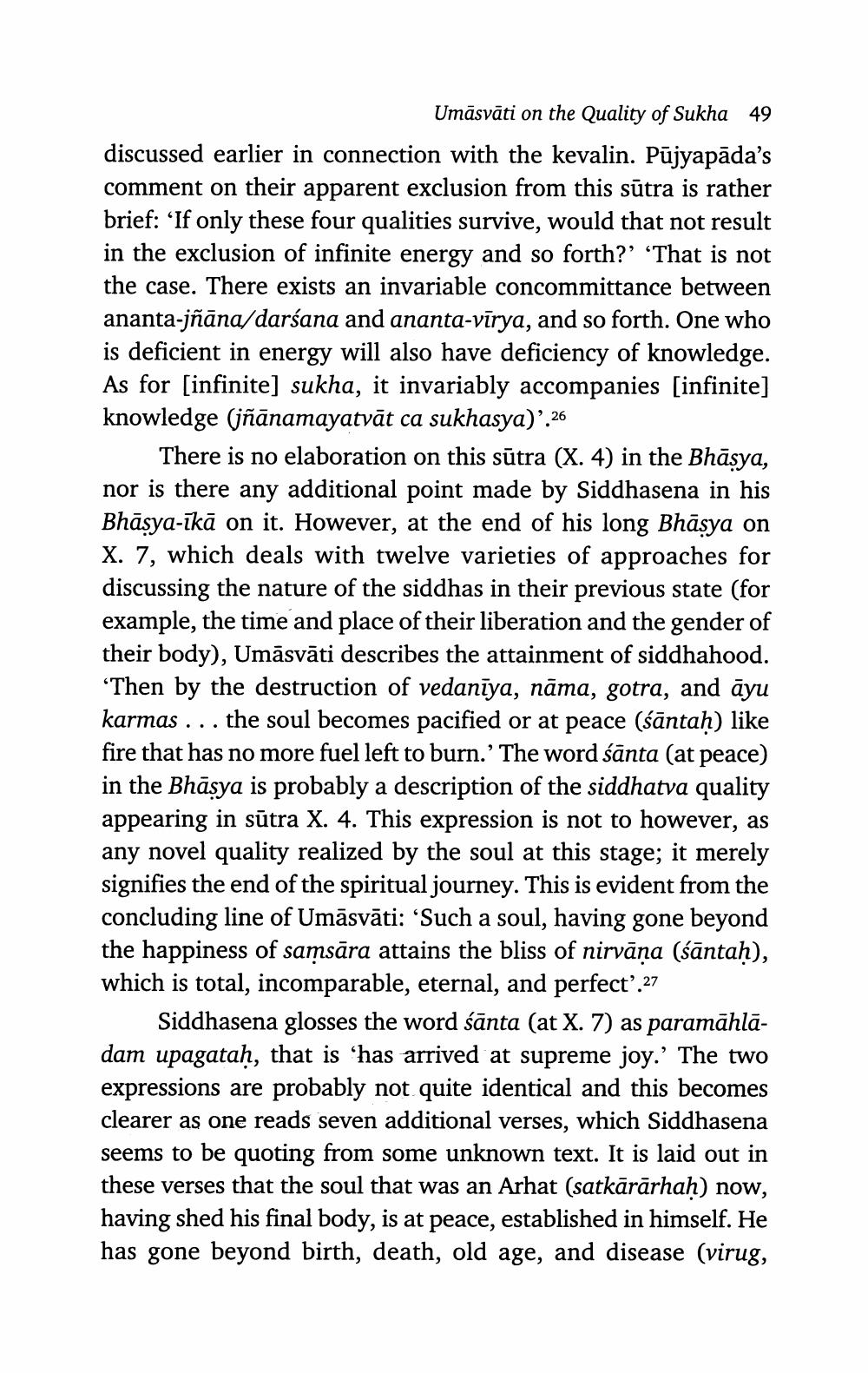________________
Umāsvāti on the Quality of Sukha 49 discussed earlier in connection with the kevalin. Pūjyapāda's comment on their apparent exclusion from this sūtra is rather brief: 'If only these four qualities survive, would that not result in the exclusion of infinite energy and so forth?” “That is not the case. There exists an invariable concommittance between ananta-jñāna/darśana and ananta-vīrya, and so forth. One who is deficient in energy will also have deficiency of knowledge. As for [infinite] sukha, it invariably accompanies [infinite] knowledge (jñānamayatvāt ca sukhasya)'. 26
There is no elaboration on this sūtra (X. 4) in the Bhāsya, nor is there any additional point made by Siddhasena in his Bhāsya-īkā on it. However, at the end of his long Bhāsya on X. 7, which deals with twelve varieties of approaches for discussing the nature of the siddhas in their previous state (for example, the time and place of their liberation and the gender of their body), Umāsvāti describes the attainment of siddhahood. “Then by the destruction of vedanīya, nāma, gotra, and āyu karmas ... the soul becomes pacified or at peace (śāntah) like fire that has no more fuel left to burn. The word śānta (at peace) in the Bhāsya is probably a description of the siddhatva quality appearing in sūtra X. 4. This expression is not to however, as any novel quality realized by the soul at this stage; it merely signifies the end of the spiritual journey. This is evident from the concluding line of Umāsvāti: ‘Such a soul, having gone beyond the happiness of samsāra attains the bliss of nirvāņa (śāntah), which is total, incomparable, eternal, and perfect'.27
Siddhasena glosses the word śānta (at X. 7) as paramāhlādam upagataḥ, that is ‘has arrived at supreme joy. The two expressions are probably not quite identical and this becomes clearer as one reads seven additional verses, which Siddhasena seems to be quoting from some unknown text. It is laid out in these verses that the soul that was an Arhat (satkārārhah) now, having shed his final body, is at peace, established in himself. He has gone beyond birth, death, old age, and disease (virug,




